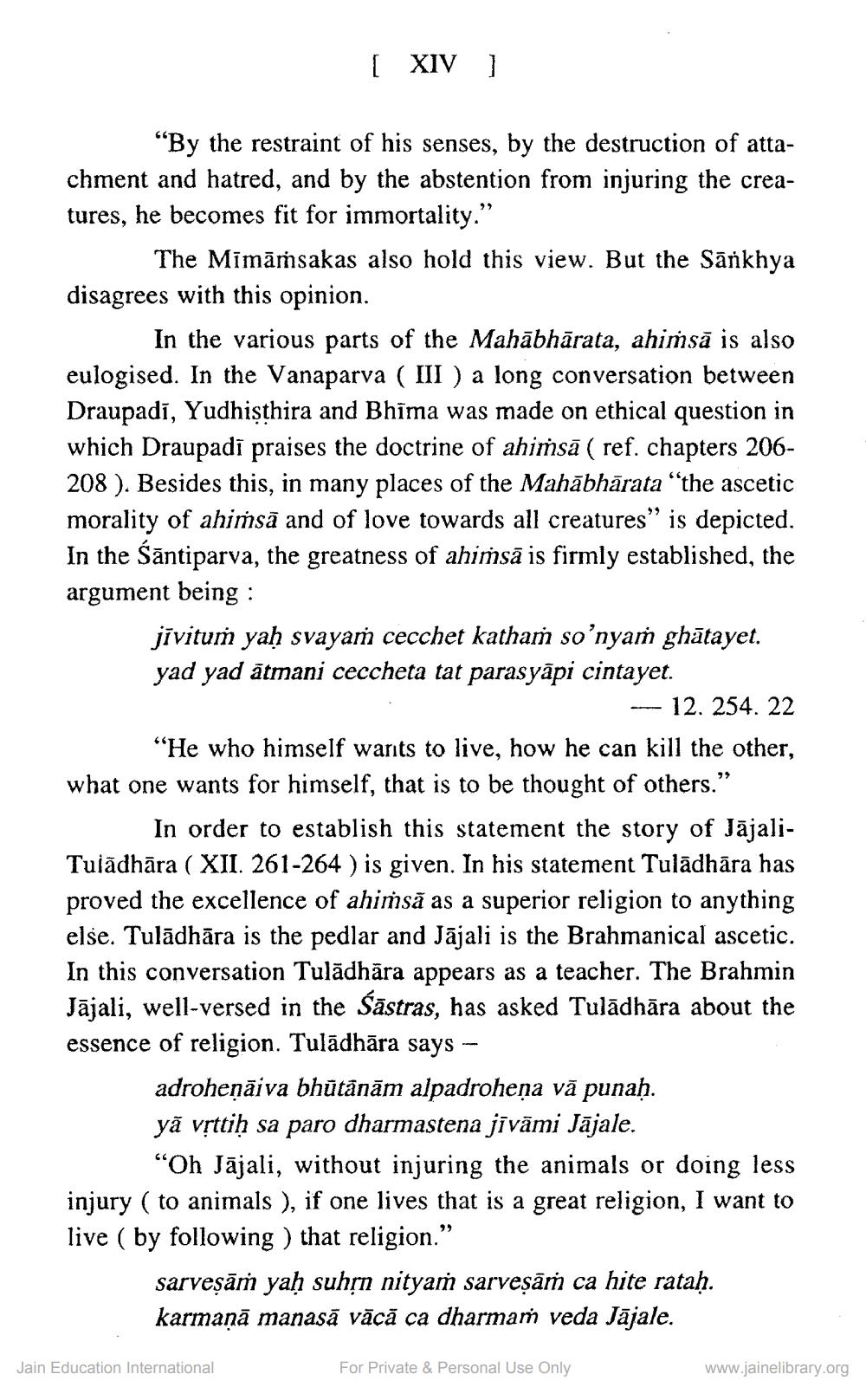________________
[ XIV
]
“By the restraint of his senses, by the destruction of attachment and hatred, and by the abstention from injuring the creatures, he becomes fit for immortality.”
The Mimāṁsakas also hold this view. But the Sāńkhya disagrees with this opinion.
In the various parts of the Mahābhārata, ahiṁsā is also eulogised. In the Vanaparva ( III ) a long conversation between Draupadi, Yudhisthira and Bhīma was made on ethical question in which Draupadi praises the doctrine of ahimsā ( ref. chapters 206208 ). Besides this, in many places of the Mahābhārata "the ascetic morality of ahiṁsā and of love towards all creatures” is depicted. In the Sāntiparva, the greatness of ahiṁsā is firmly established, the argument being :
jivitus yaḥ svayaṁ cecchet kathaṁ so'nyaṁ ghātayet. yad yad ātmani ceccheta tat parasyāpi cintayet.
--- 12. 254. 22 "He who himself wants to live, how he can kill the other, what one wants for himself, that is to be thought of others."
In order to establish this statement the story of JājaliTuiādhāra ( XII. 261-264 ) is given. In his statement Tulādhāra has proved the excellence of ahiṁsā as a superior religion to anything else. Tulādhāra is the pedlar and Jājali is the Brahmanical ascetic. In this conversation Tulādhāra appears as a teacher. The Brahmin Jājali, well-versed in the Sāstras, has asked Tulādhāra about the essence of religion. Tulādhāra says -
adroheņāiva bhūtānām alpadroheņa vā punaḥ. yā vịttiḥ sa paro dharmastena jīvāmi Jājale.
"Oh Jājali, without injuring the animals or doing less injury ( to animals ), if one lives that is a great religion, I want to live ( by following ) that religion.”
sarvesāṁ yah suhrn nityaṁ sarvesāṁ ca hite rataḥ. karmanā manasā vācă ca dharmaí veda Jājale.
Jain Education International
For Private & Personal Use Only
www.jainelibrary.org




